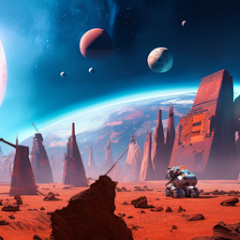The Mars colonization in the future
Mars colonization has been a topic of interest for scientists, researchers, and futurists for decades. The idea of sending humans to Mars to establish a permanent colony has been proposed as a way to not only explore the planet but also to ensure the survival of humanity in the event of a catastrophic event on Earth. But what would it take to colonize Mars and what would life be like for the first Martian settlers?
First and foremost, the technology required to send humans to Mars and establish a colony is still in its infancy. The main challenges include developing propulsion systems capable of transporting humans and cargo to Mars, creating life support systems that can sustain humans on the planet, and terraforming the planet to create a habitable environment.
Another major challenge facing Mars colonization is the cost. The estimated cost of sending humans to Mars ranges from hundreds of billions to trillions of dollars. This would require a significant investment from governments, private companies, and research institutions.
Once humans land on Mars, they would face a number of challenges unique to the planet. The most obvious of which is the harsh and unforgiving environment. Mars has a thin atmosphere, extreme cold temperatures, and high levels of radiation. In addition, the planet is also prone to dust storms that can last for months, making it difficult to conduct research and establish a colony.
Despite these challenges, there are many potential benefits to colonizing Mars. These include the possibility of finding new resources, such as water and rare minerals, as well as the potential for scientific research and the study of the planet's geology and potential for past or present life.
In conclusion, the colonization of Mars is a complex and ambitious endeavor that would require significant advancements in technology and a significant investment of resources. But the potential benefits to humanity make it a worthy pursuit, and it will be interesting to see how the technology and our understanding of the planet develops in the coming years.






No comments